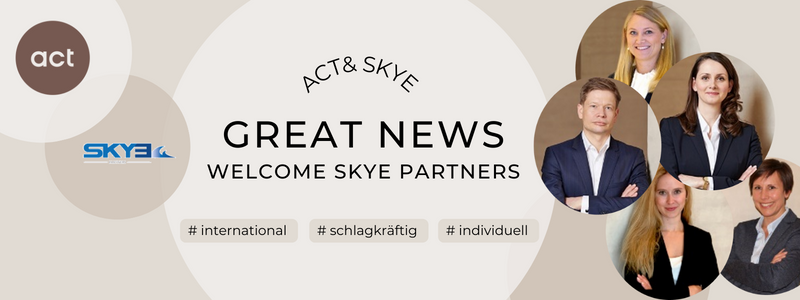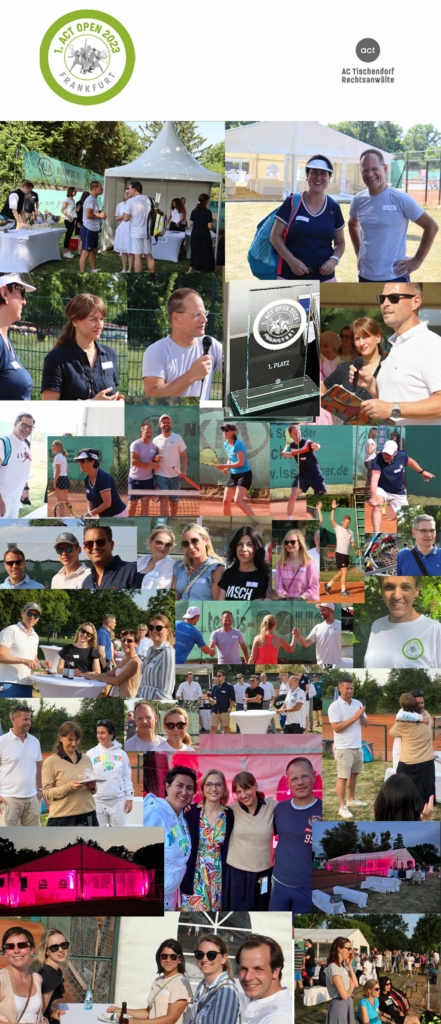The new reporting obligation under the Corporate Sustainability Reporting Directive (CSRD) begins in the 2024 financial year for all companies already covered by the Non-Financial Reporting Directive (NFRD). The report must be submitted for the first time in 2025 for the year 2024; for numerous other companies, the reporting obligations will begin between 2025 and 2028.
I. Introduction
In the European Sustainability Reporting Standards (ESRS), the European Commission has drawn up binding guidelines on the structure and content of the report. Below we provide a brief overview of the structure and content of the ESRS.
In Germany, the CSRD is being implemented with the CSR Directive Implementation Act (CSR-RUG). This ensures that companies deal with the implementation of the law in good time and collect the data required for reporting in the legally prescribed form. After all, those who „lag behind” here will not only suffer a negative impact on the company’s (ESG) rating, making it less attractive to investors – not to mention the reputational damage. In addition, violations are punishable by fines; the amounts range from 50,000 euros to 10 million euros – or even 5% of the annual group turnover.
It is therefore advisable to stay „ahead of the curve” – not only to avoid fines, but also and especially to remain or become attractive to investors, customers and even skilled workers.
II. What is it all about?
The CSRD is a European directive that aims to improve corporate reporting on sustainability aspects and thus replace the Non-Financial Reporting Directive (NFRD). Companies already required to report under the NFRD will have to report for the 2024 financial year in 2025. From the 2025 financial year, new companies that fulfil the respective size criteria will be added annually.
However, the CSRD does not regulate the content and structure of the reports to be submitted. These contents and structure are bindingly defined in the Delegated Regulation on the first sentence of the ESRS published by the European Commission on 31 July 2023 in order to ensure the comparability of sustainability reports.
Unfortunately, it cannot be said that the European Commission has succeeded in drafting these standards in a clear, easy-to-understand and concise manner. On the contrary: companies subject to reporting requirements are facing an immense amount of work in order to fulfil their reporting obligations from 2025. We recommend that every company begins to familiarise itself intensively with the ESRS at least 18 to 24 months before the end of the financial year for which it is required to report for the first time. Only in this way can it ensure that it collects the required data for the reporting year in a way that meets the requirements of the first 12 (!) published ESRS standards – more will follow.
These twelve published standards comprise two overarching standards and five topic-related standards on environmental topics, four topic-related standards on social topics and one topic-related standard on governance topics. In terms of content, these standards are based on the requirements of the Corporate Sustainability Reporting Directive (CSRD) and structurally on the structure of the Task Force on Climate-related Financial Disclosures (TCFD) with the reporting elements „Governance”, „Strategy”, „Risk Management” and „Key Figures and Targets”.
Sustainability aspects must be reported on the basis of the principle of „dual materiality”. Information on a sustainability aspect must therefore be disclosed if it is considered material either from an impact perspective (effects of business activities on the environment and society) or from a financial perspective (financial effects of sustainability-related risks and opportunities) or from both perspectives.
III. Who has to report for which financial year and when?
The scope of the ESRS depends on the following key figures, which are subject to reporting requirements:
(1) from the 2024 financial year in the 2025 annual report: companies that are already subject to a reporting obligation under the Non Financial Reporting Directive („NFRD”);
(2) from the 2025 financial year in the 2026 annual report: All other large corporations that meet at least two of the following three criteria: (1) at least 250 employees on an annual average, (2) total assets of at least EUR 20 million, (3) turnover of at least EUR 40 million;
(3) from the 2026 financial year in the 2027 annual report: Listed SMEs as well as small and non-complex credit institutions and captive insurance companies; and
(4) from the 2028 financial year in the 2029 annual report: third-country companies with subsidiaries or branches in the EU. This only applies if the threshold of EUR150 million net sales in the EU is exceeded over a period of two years.
IV. Structure of the ESRS
The ESRS requires companies to analyse their sustainability performance in depth, in some cases right through to the supply chain and the end of the product life cycle. Mandatory ESRS indicators of a qualitative and quantitative nature, as well as reliable information on the development of a company’s own sustainability performance, make companies much more accountable than before. The ESRS are divided into three categories that complement and interact with each other:
a) Cross-cutting standards that cover general concepts and principles for the preparation of sustainability statements and contain overarching disclosure requirements.
b) Topical standards, each of which covers a specific and clearly defined sustainability topic, i.e. disclosure requirements in relation to sustainability-related impacts, risks and opportunities that are considered material for all companies regardless of specific sectors.
c) Sector-specific standards that cover the disclosure of information on sustainability-related impacts, risks and opportunities that are considered material for all companies in a particular industry (not yet published).
V. ESRS: Overarching standards
ESRS1 General requirements
ESRS 1 prescribes binding concepts and principles that apply to the preparation of sustainability statements in accordance with the CSRD. All material information on sustainability-related impacts (effects of business activities on the environment and society), risks and opportunities should be disclosed in the sustainability statements in accordance with the applicable ESRS. The ESRS prescribe reporting in accordance with standardised, sector-independent and sector-specific disclosure requirements, supplemented by company-specific disclosures that are to be developed in accordance with the principles set out in ESRS 1.
ESRS2 General disclosures
ESRS 2 builds on the content of the requirements in ESRS 1 General Requirements and contains overarching disclosure requirements for the sustainability statement.
VI. ESRS: Thematic standards on environmental issues
E1 Climate change
This standard provides disclosure requirements that enable the addressees of a company’s sustainability statements to understand the following aspects (non-exhaustive list): The company’s plans and ability to adapt its strategy and business model in line with the transition to a sustainable economy and to contribute to limiting global warming to 1.5 degrees Celsius.
E2 Environmental pollution (Pollution)
This standard provides disclosure requirements to enable users of an organisation’s sustainability disclosures to understand the following aspects (non-exhaustive list): All measures taken to prevent, mitigate or remedy actual or potential negative impacts and to manage risks and opportunities and the results of these measures.
E3 Water and marine resources
The standard provides for disclosure requirements that are intended to enable users of a company’s sustainability statements to understand whether, how and to what extent the company contributes to the following points:
a) Ambitions of the European Green Deal for fresh air, clean water, healthy soil and biodiversity and to ensure the sustainability of the blue economy and the fisheries sector,
b) EU Water Framework Directive,
c) EU marine strategy framework,
d) EU directive on maritime spatial planning (EU maritime spatial planning directive),
e) UN Sustainable Development Goals (SDGs) 6) Clean water and sanitation and 14) Life below water.
E4 Biodiversity and ecosystems
The standard provides for disclosure requirements that should enable the addressees of a company’s sustainability statements to understand the following aspects (non-exhaustive list): The nature, type and extent of the company’s material risks, dependencies and opportunities related to biodiversity and ecosystems, and how the company manages them.
E5 Resource use and circular economy
The standard stipulates disclosure requirements that should enable the addressees of a company’s sustainability statements to understand the following aspects (non-exhaustive list): The financial implications for the company of the material risks and opportunities arising in the short, medium and long term from the company’s impacts and dependencies in relation to resource use and the circular economy.
VII. ESRS: Thematic standards on social issues
S1 Own workforce
The financial impact on the company of the main risks and opportunities arising in the short, medium and long term from the company’s impacts and dependencies in relation to its own workforce.
S2 Workers in the value chain
The nature, type and extent of the company’s material risks and opportunities relating to labour impacts and dependencies in the value chain, and how the company manages them.3S2 Workers in the value chain
S3 Affected communities
Significant positive and negative actual or potential impacts of the organisation on communities in areas where impacts are most likely and severe.
S4 Consumers and end-users
All measures taken to prevent, minimise or eliminate actual or potential impacts and deal with risks and opportunities as well as the results of these measures.
VIII. ESRS: Topic related standards on governance topics
G1 Business conduct
The standard provides disclosure requirements to enable the recipients of a company’s sustainability statements to understand the company’s strategy and approach, its processes and procedures, and its performance in relation to corporate policy.
IX. Outlook
In addition to the development of the first twelve ESRS as „Set 1”, the CSRD also envisages further work packages for EFRAG. The first sector-specific ESRSs are to be developed for a total of around 40 different industries. The development of specific listed SME ESRSs is also planned for the future reporting obligations of capital market-oriented small and medium-sized enterprises (SMEs) within the scope of application. Voluntary guidelines are to be developed for non-capital-market-oriented SMEs. Specific third-country ESRS are also to be developed for the reporting of third-country companies outside the EU. However, a timetable for the publication of these drafts has not yet been set.
Please do not hesitate to contact us if you have any questions. We specialise in the realisation and implementation of compliance-related IT projects in the financial regulatory environment.



